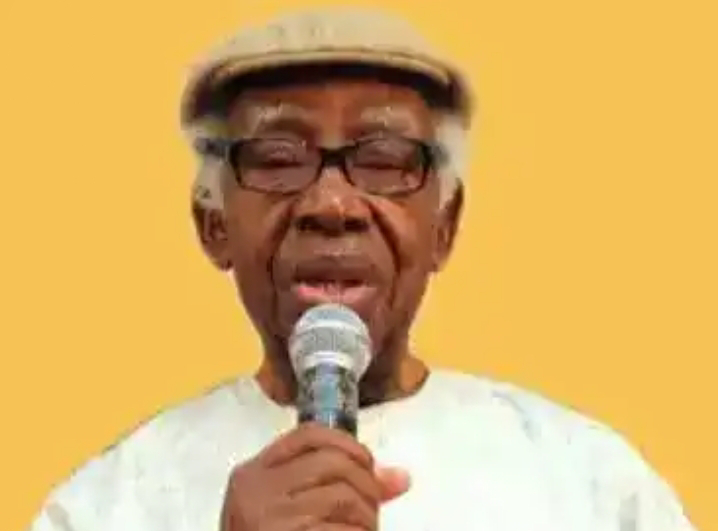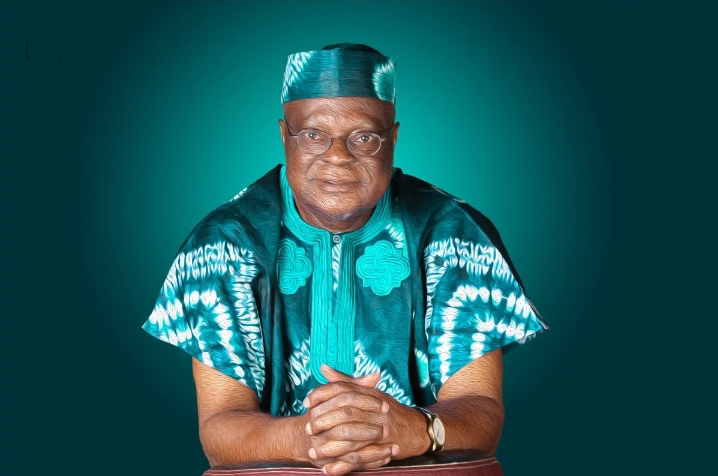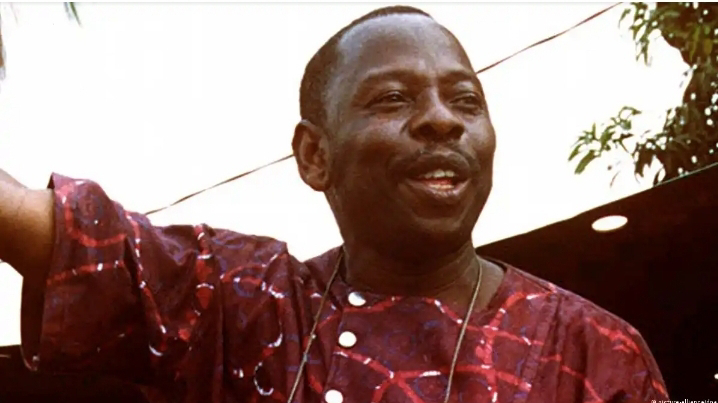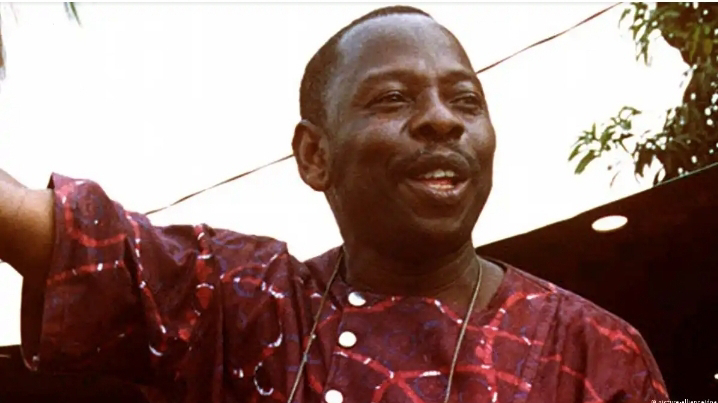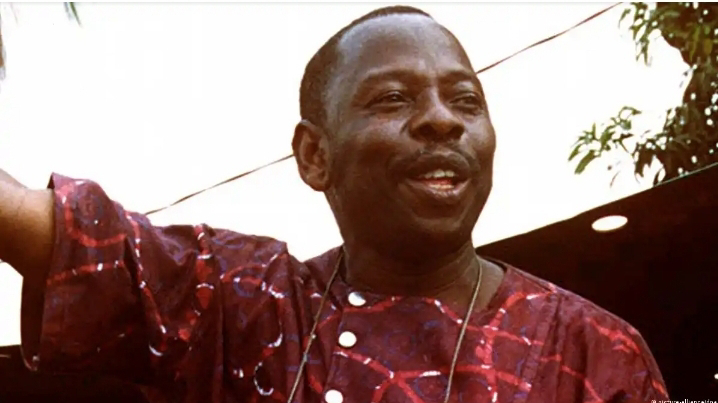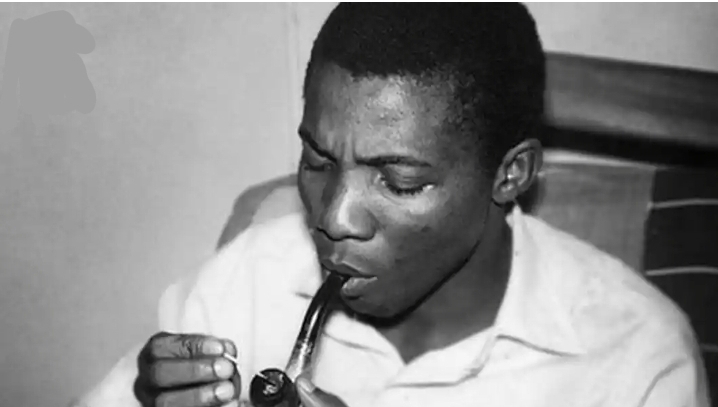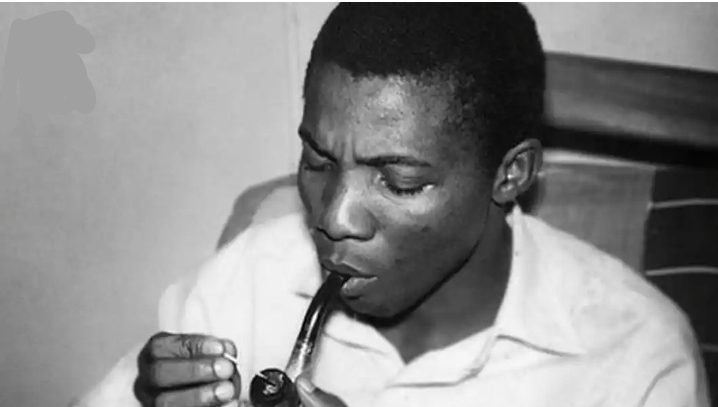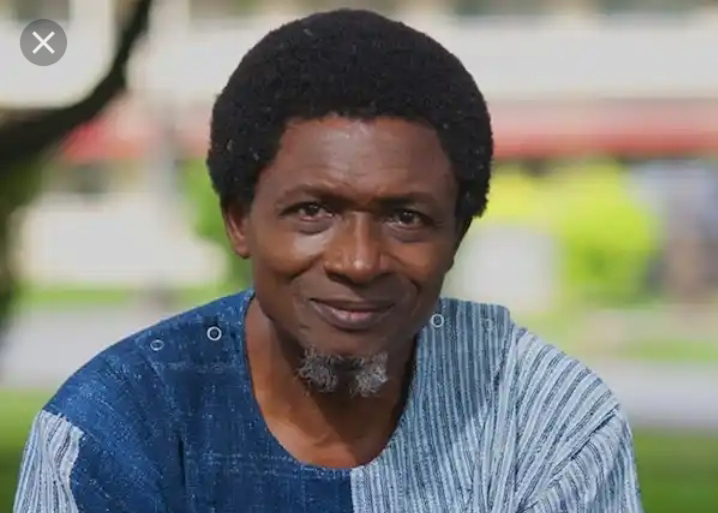Tuesday 24 October 2023
Once Upon a Time by Gabriel Okara
Thursday 13 July 2023
The Moon and Me by Femi Osofisan (Okinba Launko)
Monday 10 July 2023
End of the War by Femi Osofisan (Okinba Launko)
Babafemi Adeyemi Osofisan is a Nigerian professor and writer born on June 16, 1946 in Ogun State, Nigeria, who is well-known for his literary works that criticize societal issues and incorporate African traditional performances and surrealism in some of his plays. His plays often revolve around the struggle between good and evil. He is a didactic writer who aims to rectify the decaying state of society through his works. Additionally, he has written poetry under the pen name Okinba Launko.
Saturday 8 July 2023
Dedication from Moremi, a poem by Wole Soyinka
Break, not the gecko's slight skin, but its fall
Taste this soil for death and plumb her deep for life
As this yam, wholly earthed, yet a living tuber
To the warmth of waters, earthed as springs
As roots of baobab, as the hearth.
The air will not deny you. Like a top
Spin you on the navel of the storm, for the hoe
That roots the forests plows a path for squirrels.
Be ageless as dark peat, but only that rain's
Fingers, not the feet of men, may wash you over.
Long wear the sun's shadow; run naked to the night.
Peppers green and red—child—your tongue arch
To scorpion tail, spit straight return to danger's threats
Yet coo with the brown pigeon, tendril dew between your lips.
Shield you like the flesh of palms, skyward held
Cuspids in thorn nesting, in sealed as the heart of kernel—
A woman's flesh is oil—child, palm oil on your tongue
Is suppleness to life, and wine of this gourd
From self-same timeless run of runnels as refill
Your pod lings, child, weaned from yours we embrace
Earth's honeyed milk, wine of the only rib.
Now roll your tongue in honey till your cheeks are
Swarming honeycombs—your world needs sweetening, child.
Cam woodround the heart, chalk for flight
Of blemish—see? it dawns!—antimony beneath
Armpits like a goddess, and leave this taste
Long on your lips, of salt, that you may seek
None from tears. This, rain-water, is the gift
Of gods—drink of its purity, bear fruits in season.
Fruits then to your lips: haste to repay
The debt of birth. Yield man-tides like the sea
And ebbing, leave a meaning of the fossil led sands.
Procession I - Hanging Day, a poem by Wole Soyinka
Telephone Conversation, a poem by Wole Soyinka
Asewo, a poem by Mamman Vatsa
Longing by Femi Osofisan (Okinba Launko)
Thursday 6 July 2023
Wild Things by Femi Osofisan
Wednesday 5 July 2023
Yamankoro, a poem by Mamman Vatsa
Tuesday 4 July 2023
Paris Latin Quarter by Femi Osofisan (Okinba Launko)
Head Na King, a poem by Mamman Vatsa
Sunday 2 July 2023
Indigenisation Without Mind, a poem by Mamman Vatsa
The True Prison, a poem by Ken Saro-Wiwa
For Sr. Majella McCarron, a poem by Ken Saro-Wiwa
Prison Song, a poem by Ken Saro-Wiwa
Mama Came Calling, a poem by Ken Saro-Wiwa
Victory Song, a poem by Ken Saro-Wiwa
Keep Out of Prison, a poem by Ken Saro-Wiwa
Dis Nigeria Sef, a poem by Ken Saro-Wiwa
Saturday 1 July 2023
Saturday at Ikok, a poem by Mamman Vatsa
Friday 30 June 2023
Fragments Out Of The Deluge VIII: But The Sunbird by Christopher Okigbo
Thursday 29 June 2023
The Power and Glory of Memory by Funso Aiyejina
Death, awesome in its totalitarian amour of conceit
Throws arrogant affronts in the face of humanity
Ignoring the power and the glory of memory
Our immortal antidote against the sting of mortality
Our invincible armour against all doctored history
The gentle fingers of dew drops forming before sunrise
On whose invisible wings the promise of bloom rides
Over generations of sand dunes, along the primal path
Of Ogun, pathfinders and pathmender, to an oasis of hope …
Today, men of iron have banished past truths and deeds
And decreed their hirelings into new royal legends
To be installed in bunkers inside custom built palaces
Fitted out with regulation pools, overflowing with milk –
Human milk; protected by blind, deaf and mute walls
Designed to shut out the babble of the market place
Insulate their royal highnesses within a magical comfort
From which, unhindered, they continue to mastermind us
Into the holding bays designed into their castles.
For consolation, let us tickle the armpit of memory
Awake, into gentle horses of speech on whose back
We may ride triumphant into the eternal city of hope
Submerged somewhere inside our past ruins and scope
And beyond to when kings kept faith with their subjects
and watched over the teeming masses in the markets
Listening intensely and always to bold human voices
Intuiting muttered hopes into fulfilled prophecies
Such that the people saw and hailed them as wise
Prostrating themselves, before and after, in gratitude.
Funso Aiyejina
Funso Aiyejina (born in 1949 in Ososo, Edo State) is a Nigerian academic, poet and playwright. He graduated from the University of Ife, now Obafemi Awolowo University, Ile-Ife where he lectured. He also lectured at the University of the West Indies, Trinidad and Tobago and at Lincoln University in Jefferson City, Missouri.Tuesday 27 June 2023
Transition by Christopher Okigbo
Monday 26 June 2023
Before They Came Calling in the Middle of the Night by Funso Aiyejina
Way back when, before chickens became toothless
And turned champion devourers of back-up grains …
Before drunk agents came crashing into our dreams
Armed and ready to arrest metaphors in our streams
On the orders of a General high on syndicated acclaims
Galloping full-speed ahead of our children’s fervent pleas,
I believed with the innocent citizens of our nation
In the open-arm one-on-one embrace of salutation.
But after seeing wily foxes at work in our forests
Spiders spinning deadly webs in and out of contexts,
I now know why, even as they bury comrades freshly killed
Fists of the children of Soweto remain forever clenched.
We have always had their likes: inheritors and usurpers
Who, too cowardly to confront the truths in our songs
Would don the dirty garb of aberrant masquerades
Determined to waylay and strangle singers of tales
Long before the ascension of this General Tortoise.
Today, descendants of those same insolent renegades,
Protected by the anonymity of their choice profession,
Courageously finger the homes of witnesses of truth
Forgetting like their ancestors now condemned to oblivion
That the outstanding relatives of a condemning finger
Are inevitably aimed back at the heart of the pointer.
Whatever darkness conceals, dawn is bound to reveal.
Why argue with men who insist they are really clad
In exotic robes when it is too dark to investigate?
Let them dance. Let them prance. Like the intoxicated.
Daylight, when it arrives on the silent wings of dawn
Will reveal them as wearers of rags before the town.
Men like them are not new; we always had their kind:
Men who conveniently forget that when an order
Fit only for slaves is forced on us we must deliver
Such with the wisdom and courage of the free
Instead of kicking in wide open doors with glee.
To such men our ancestors sent collective ritual curses
Causing them to die abominable deaths, swollen with greed.
Funso Aiyejina
Funso Aiyejina (born in 1949 in Ososo, Edo State) is a Nigerian academic, poet and playwright. He graduated from the University of Ife, now Obafemi Awolowo University, Ile-Ife where he lectured. He also lectured at the University of the West Indies, Trinidad and Tobago and at Lincoln University in Jefferson City, Missouri.Sunday 25 June 2023
The Dialogue by Funso Aiyejina
Fragments Out Of The Deluge V: Upon An Empty Sarcophagus by Christopher Okigbo
eye of the celibate women by Lillian Akampurira Aujo
lies a dancing rainbow-ed cloud
and a garland of beautiful-legged men
lean and clean as celestial stags
no hunks of hearts
hanging on strings
no haunted cries
clanging the air
only the green thrum
of buttercups pinked
& witches’ tits tight as drums
coming alive in fields & streams
Saturday 24 June 2023
Fragments Out Of The Deluge VII: And From Frame Of Iron by Christopher Okigbo
Friday 23 June 2023
Sacrifice by Christopher Okigbo
discovery by Lillian Akampurira Aujo
Lustra by Christopher Okigbo
So would I to the hills again
so would I
to where springs the fountain
there to draw from
and to hilltop clamber
body and soul
whitewashed in the moondew
there to see from
So would I from my eye the mist
so would I
through moonmist to hilltop
there for the cleansing
Here is a new-laid egg
here a white hen at midterm.
Christopher Okigbo
Christopher Ifekandu Okigbo was born in 1930. He was a Nigerian poet and he is today widely acknowledged as one of the most outstanding postcolonial English-language African poets and one of the major modernist writers of the twentieth century. He died in 1967 while fighting for the independence of Biafra.A Letter To Lynda, a poem by Funso Aiyejina
Fragments Out of the Deluge X: But at The Window by Christopher Okigbo
Thursday 22 June 2023
equilibrium by Lillian Akampurira Aujo
Bridge, a poem by Christopher Okigbo
Wednesday 21 June 2023
Eyes Watch the Stars by Christopher Okigbo
Overture by Christopher Okigbo
Tuesday 20 June 2023
When The Monument... by Funso Aiyejina
Lament of the Flutes by Christopher Okigbo
Monday 19 June 2023
The Stars Have Departed by Christopher Okigbo
Sunday 18 June 2023
Fragments Out of The Deluge IX: And to Us They Came by Christopher Okigbo
Saturday 17 June 2023
To Ararimeh at Two by Funso Aiyejina
The Celebrants, a poem by Ken Saro-Wiwa
The Celebrants They are met once again To beat drums of confusion Tattooes of mediocrity They are met once again The new cow to lead To the ...

-
Homeless, Not Hopeless We are the native of the street Holed-up under bridges We are necessary We are part of your existence Major fragm...
-
Ibadan Ibadan, running splash of rust and gold-flung and scattered among seven hills like broken china in the sun. J. P. Clark John P...
-
Young Africa's Plea Don’t preserve my customs As some fine curious To suit some white historian’s tastes. There’s nothing artificial...
